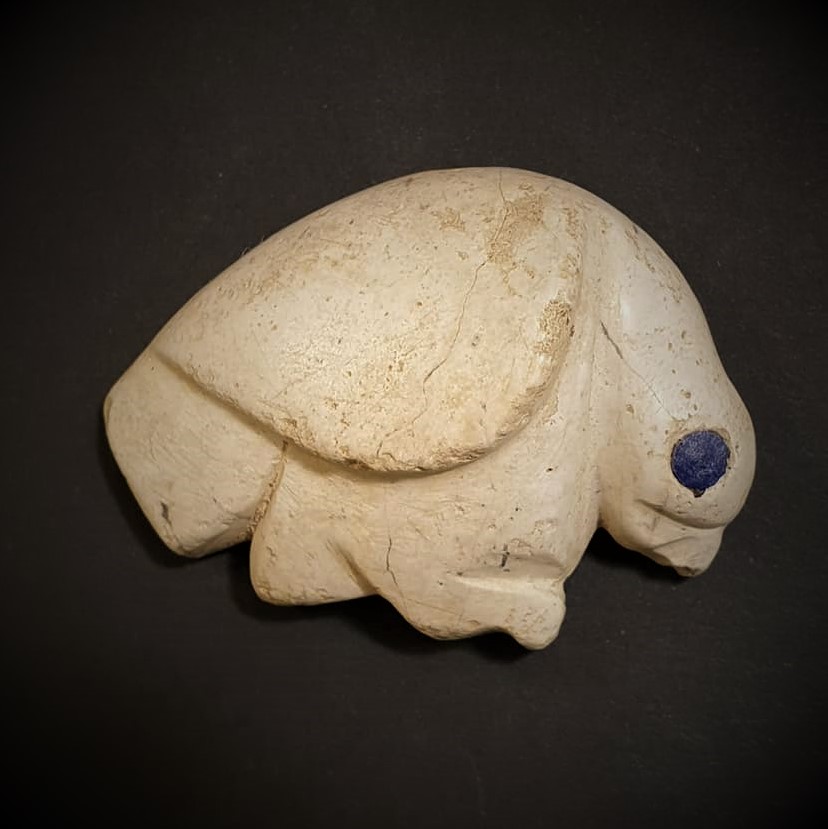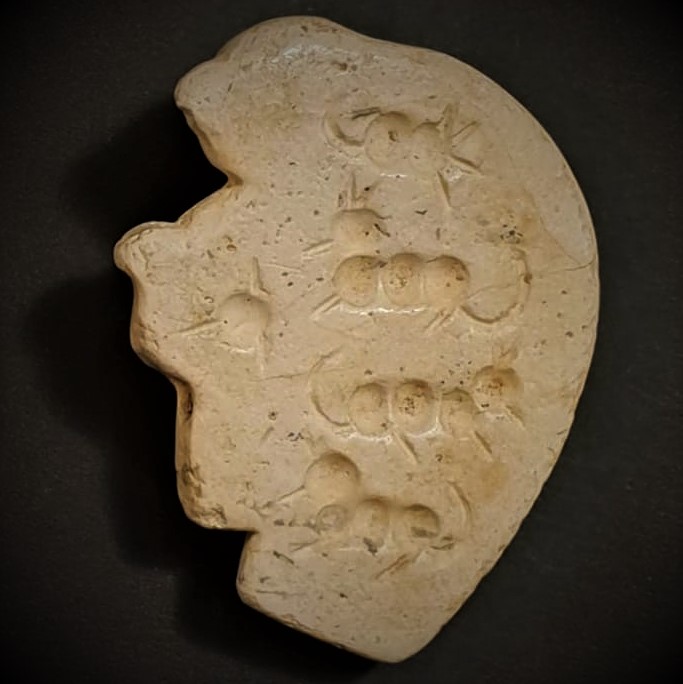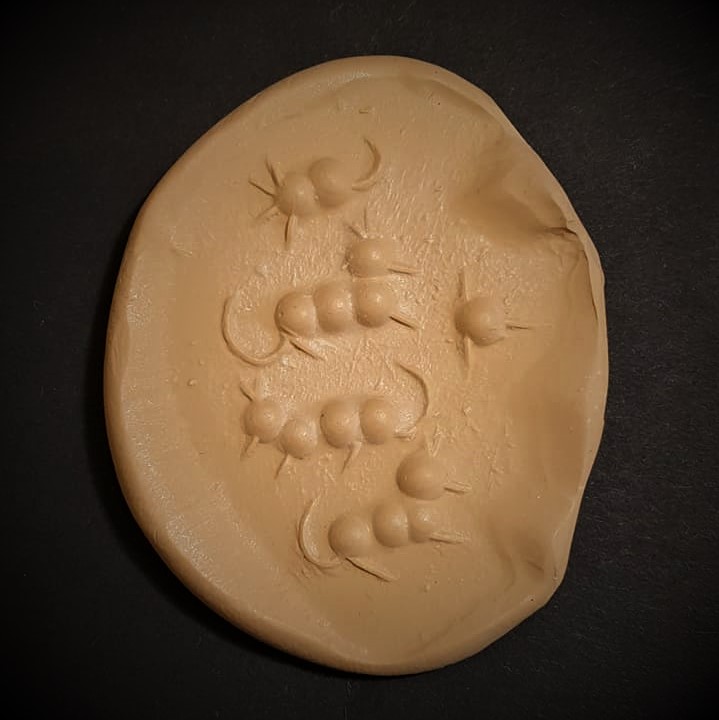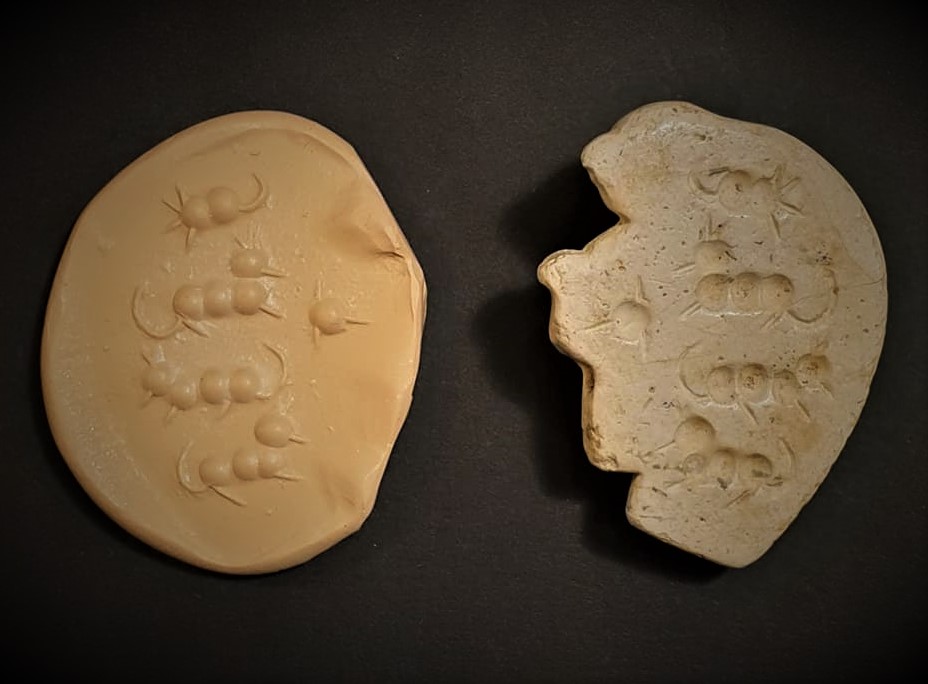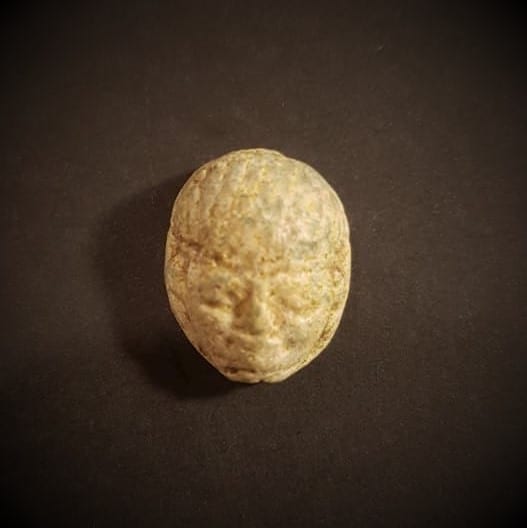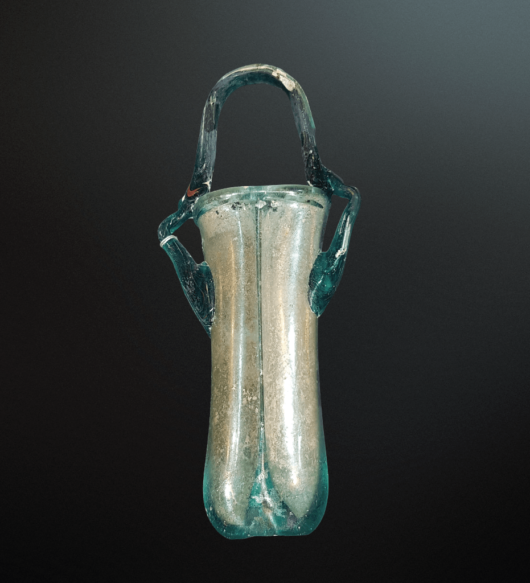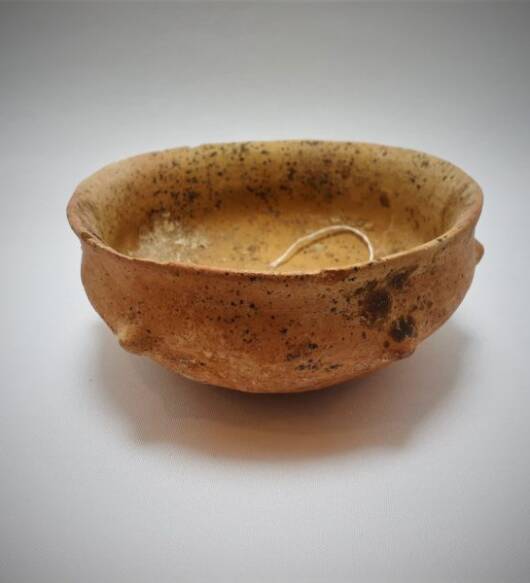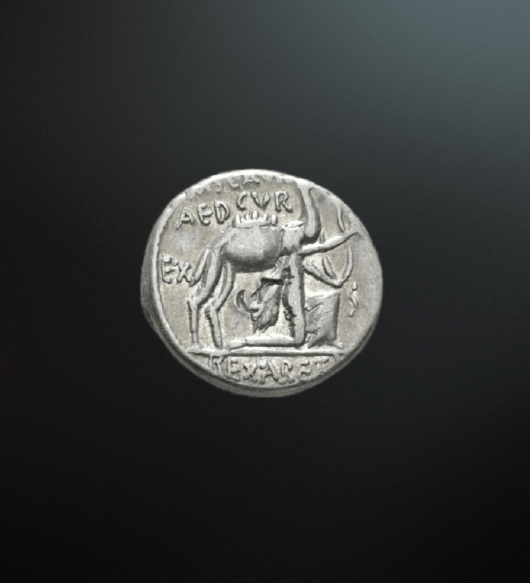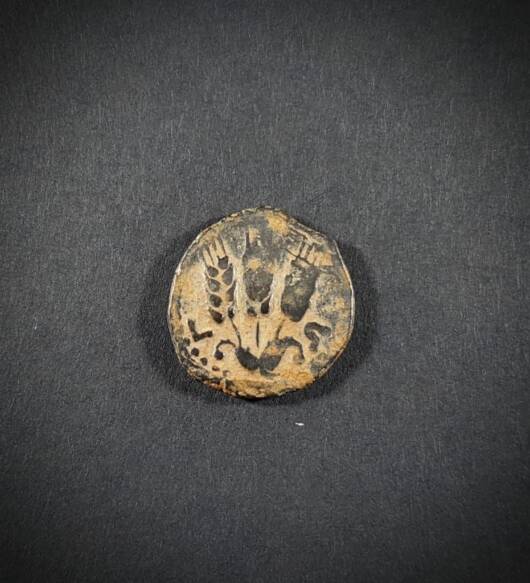Sumerian Stone Eagle Seal
Description
Description
A Sumerian White Stone Eagle Seal, Late Uruk-Jemdet Nasr Period 3100/2900 BC, With lapis lazuli eye glued with bitumen and pierced vertically.
The bird fully modelled body, defined by clear articulated segments, On the base four schematic animals and one grain executed in the drilled technique, This Bird seal may have served as both an amulet and a seal
Amulets and seals were characteristic features on the Mesopotamian way of life. Used as a charm and protection from evil, the amulet was perforated, usually through its short axis, to facilitate wearing.
The seal, whether stamp or cylinder, was used to mark objects but not necessarily worn, and was usually perforated along its longer axis. Amulet seals combined both function-that of a charm and that of a seal.
The earliest and most enduring type of seal, the stamp seal, appeared in the sixth millennium.it has a pattern incised on a flat horizontal surface witch, when impressed, leaves a positive impression in relief.
The other type, the cylinder which, when rolled over wet clay, leaves a positive impression in relief.
Seals ware frequently employed to impress of bullae placed on a knot of string fasting a sack, or of strips encasing the closure of a vessel.
The purpose was to seal the contents against tampering, providing security against fraud. Since the cylinder seal left a continuous frieze and thus was more ideally suited to covering the surface of the clay,
it became the most popular means of sealing.
Likewise, it answered the need of the expanding economy for an increase of the range of variability in seal design.
Seals were used mainly as a form of symbolic communication involving either administrative regulation or the ownership of material goods: as legal instruments,
they were part of the controlling mechanisms of the economy, indicating origin, authority, acknowledgment, or obligation furthermore, seals also fulfilled ritual functions as amulets or votive objects.
LADDERS TO HEAVEN, Art Treasures From Land of The Bible.
Treasures of the Bible Lands, The Elie Borowski collection


